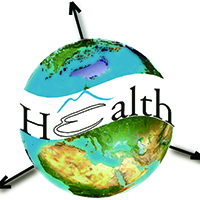Use of Twitter social media activity as a proxy for human mobility to predict the spatiotemporal spread of COVID-19 at global scale

Submitted: 3 April 2020
Accepted: 25 April 2020
Published: 15 June 2020
Accepted: 25 April 2020
Abstract Views: 18407
PDF: 2188
HTML: 34
HTML: 34
Publisher's note
All claims expressed in this article are solely those of the authors and do not necessarily represent those of their affiliated organizations, or those of the publisher, the editors and the reviewers. Any product that may be evaluated in this article or claim that may be made by its manufacturer is not guaranteed or endorsed by the publisher.
All claims expressed in this article are solely those of the authors and do not necessarily represent those of their affiliated organizations, or those of the publisher, the editors and the reviewers. Any product that may be evaluated in this article or claim that may be made by its manufacturer is not guaranteed or endorsed by the publisher.
Similar Articles
- Yao Etienne Kouakou, Iba Dieudonné Dely, Madina Doumbia, Aziza Ouattara, Effah Jemima N’da, Koffi Evrard Brou, Yao Anicet Zouzou, Guéladio Cissé, Brama Koné, Methodological framework for assessing malaria risk associated with climate change in Côte d’Ivoire , Geospatial Health: Vol. 19 No. 2 (2024)
- Ana Elisa Pereira Silva, Francisco Chiaravalloti Neto, Gleice Margarete de Souza Conceição, Leptospirosis and its spatial and temporal relations with natural disasters in six municipalities of Santa Catarina, Brazil, from 2000 to 2016 , Geospatial Health: Vol. 15 No. 2 (2020)
- Adrian M. Tompkins, Luca Caporaso, Assessment of malaria transmission changes in Africa, due to the climate impact of land use change using Coupled Model Intercomparison Project Phase 5 earth system models , Geospatial Health: Vol. 11 No. s1 (2016): HEALTHY FUTURES
- Carlos Mena, César Sepúlveda, Yony Ormazábal, Eduardo Fuentes, Iván Palomo, Impact of walkability with regard to physical activity in the prevention of diabetes , Geospatial Health: Vol. 12 No. 2 (2017)
- Ahmad Raeesi, Behzad Kiani, Azam Hesami, Ladan Goshayeshi, Neda Firouraghi, Shahab MohammadEbrahimi, Soheil Hashtarkhani, Access to the COVID-19 services during the pandemic - a scoping review , Geospatial Health: Vol. 17 No. s1 (2022): Special issue on COVID-19
- Sherif Amer, Robert Bergquist, Transport geography: Implications for public health , Geospatial Health: Vol. 16 No. 1 (2021)
- Enner Alcântara, José Mantovani, Luiz Rotta, Edward Park, Thanan Rodrigues, Fernando Campos Carvalho, Carlos Roberto Souza Filho, Investigating spatiotemporal patterns of the COVID-19 in São Paulo State, Brazil , Geospatial Health: Vol. 15 No. 2 (2020)
- Abdulkader Murad, Fazlay Faruque, Ammar Naji, Alok Tiwari, Mansour Helmi, Ammar Dahlan, Modelling geographical heterogeneity of diabetes prevalence and socio-economic and built environment determinants in Saudi City - Jeddah , Geospatial Health: Vol. 17 No. 1 (2022)
- Isabella Vilhena Freire Martins, Barbara Rauta de Avelar, Maria Julia Salim Pereira, Adevair Henrique da Fonseca, Application of a geographical information system approach for risk analysis of fascioliasis in southern EspÃrito Santo state, Brazil , Geospatial Health: Vol. 6 No. 3 (2012)
- Sharifah Saffinas Syed Soffian, Azmawati Mohammed Nawi, Rozita Hod, Khairul Nizam Abdul Maulud, Ahmad Tarmizi Mohd Azmi, Mohd Hazrin Hasim Hashim, Huan-Keat Chan, Muhammad Radzi Abu Hassan, Spatial clustering of colorectal cancer in Malaysia , Geospatial Health: Vol. 18 No. 1 (2023)
<< < 22 23 24 25 26 27 28 29 30 31 > >>
You may also start an advanced similarity search for this article.

 https://doi.org/10.4081/gh.2020.882
https://doi.org/10.4081/gh.2020.882







